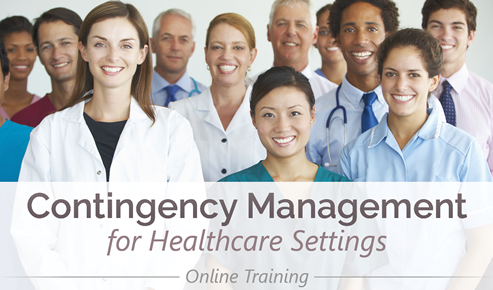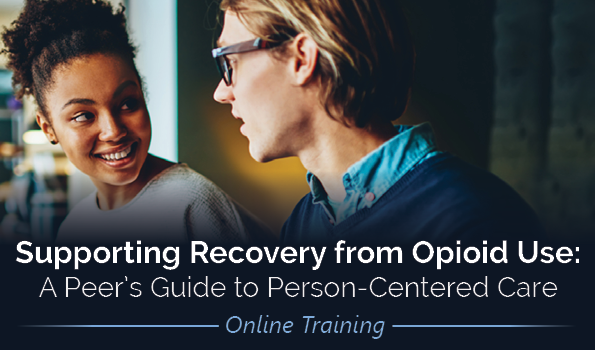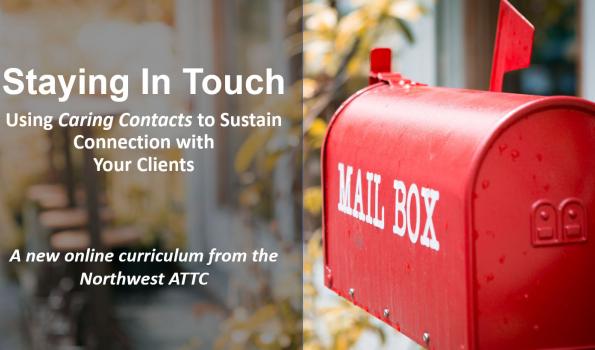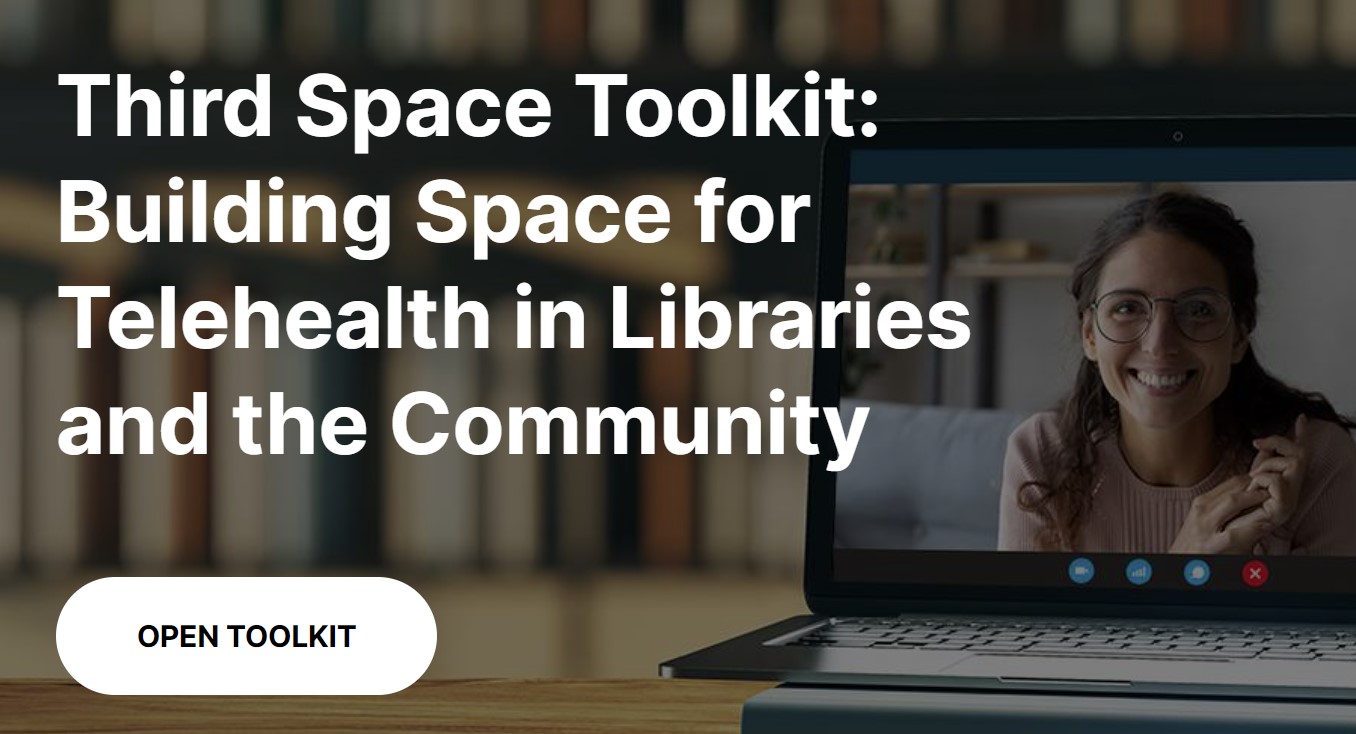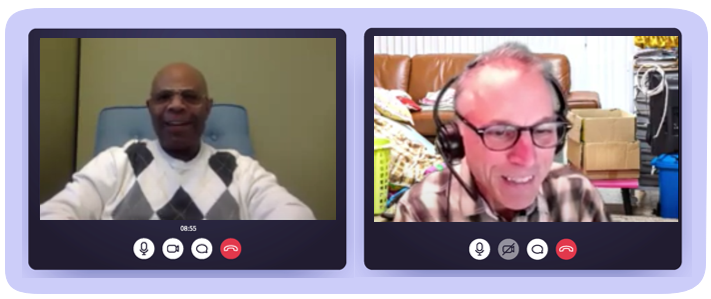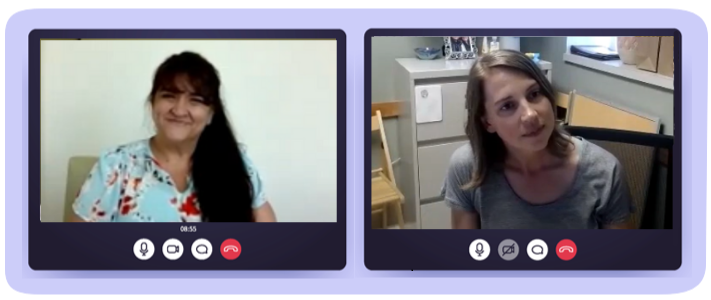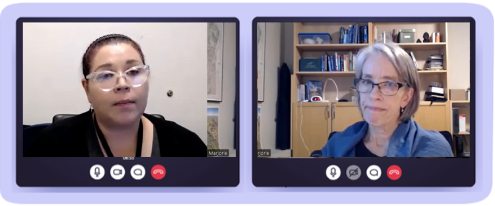Products
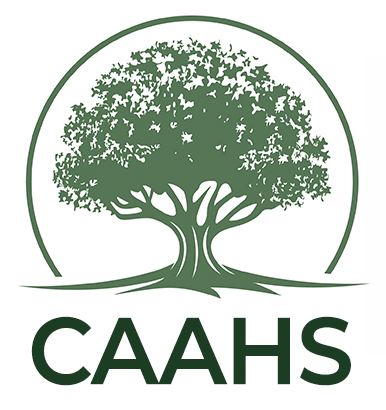
CAAHS has developed a range of professional education products for the addiction workforce, which are freely available via links here on our website. This includes on-demand resources, including webinar recordings, podcasts, online trainings, and video demonstrations of clinical practices and supervision processes, as listed below. Also found below are articles and conference presentations authored by CAAHS staff and affiliates that cover topics such as workforce training preferences and priorities, innovative methodologies and results of select projects, and more.
On-Demand Education & Training

Northwest ATTC Webinar Series (ongoing)
This monthly series began in January 2018 and now features over 50 recorded webinars on a wide range of topics, with new ones added every month. Topics include opioids and stimulants, stigma, pain management, evidence-based practices, harm reduction, ethics, integrated care, and more.
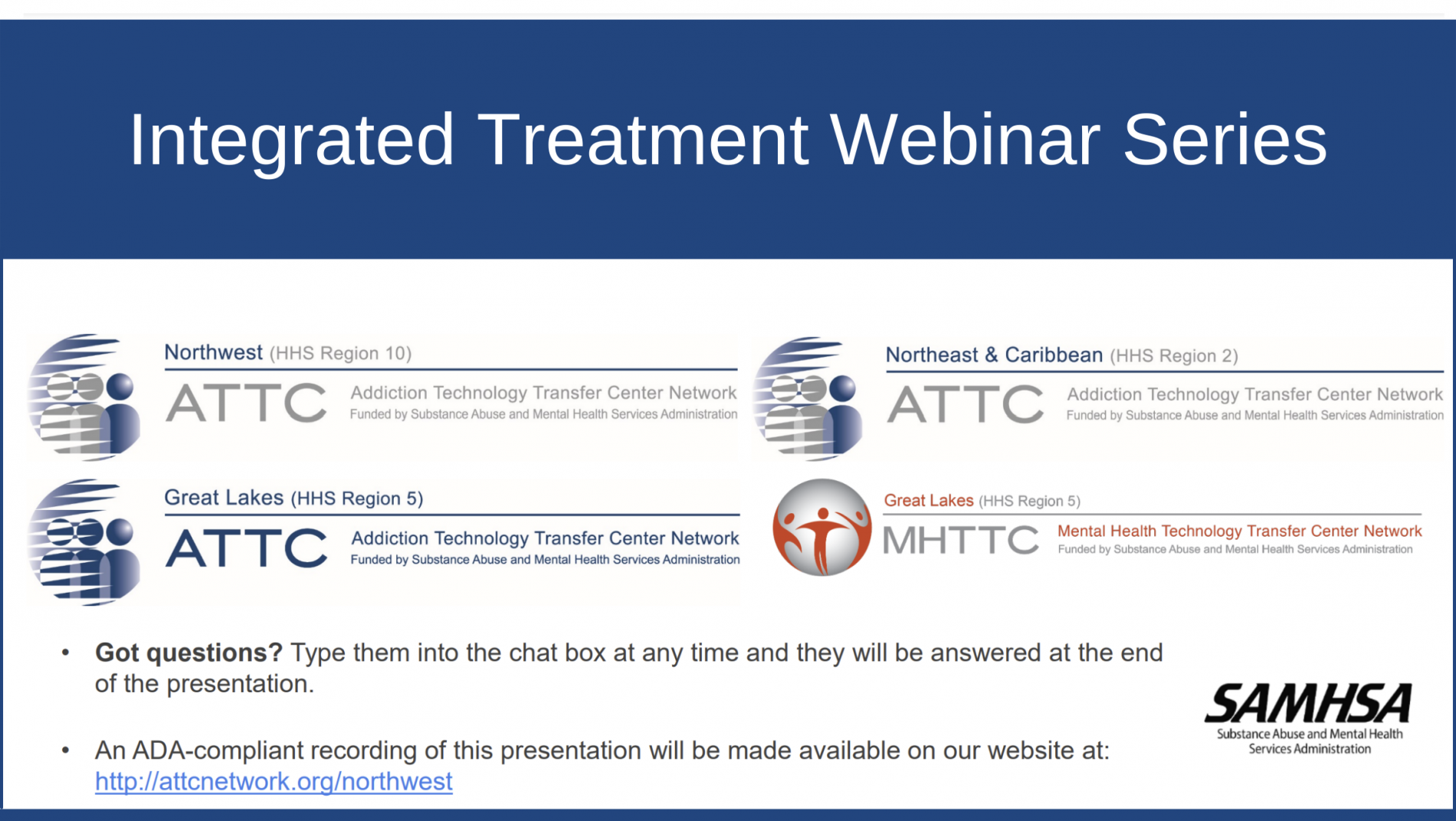
Integrated Treatment Webinar Series (2020)
This 5-part series, sponsored by the Northwest, Great Lakes, and Northwest & Caribbean ATTCs, featured a range of national experts discussing approaches to designing and assessing capacity for behavioral health integration; organizational structure and service environment; staffing and training; intake, screening, and assessment; and integrated treatment planning.
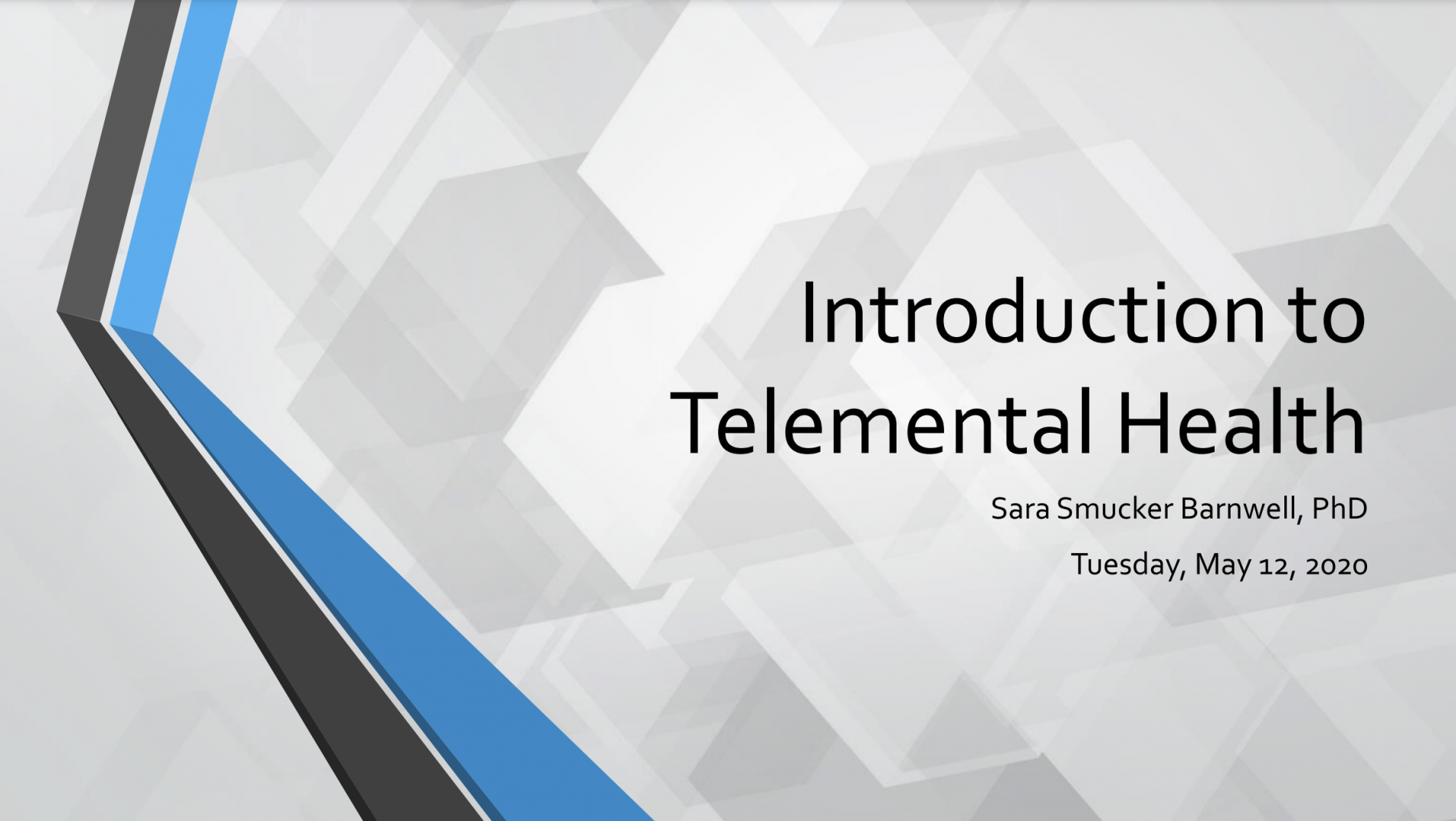
Fundamentals of Telemental Health (2020)
This 6-week series, presented by clinical psychologist Sara Smucker Barnwell, PhD and sponsored by the Northwest ATTC, consisted of 5 weekly webinars covering topics useful for practitioners engaging in telehealth sessions with clients, including how to prepare your office for telemental health sessions, client intake and assessment, clinical engagement, emergencies and pitfalls in telemental health, and risk management.
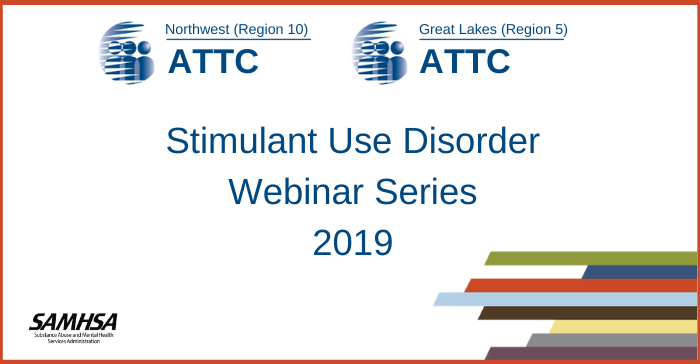
Stimulant Use Disorder Webinar Series (2019)
This 3-part series, held in summer 2019, was sponsored by the Northwest ATTC and the Great Lakes ATTC and featured installments on strategies to address cocaine and methamphetamine use, provider perspectives on treatment for people with stimulant use disorders, and ways to implement evidence-based practices to address stimulant use disorders.
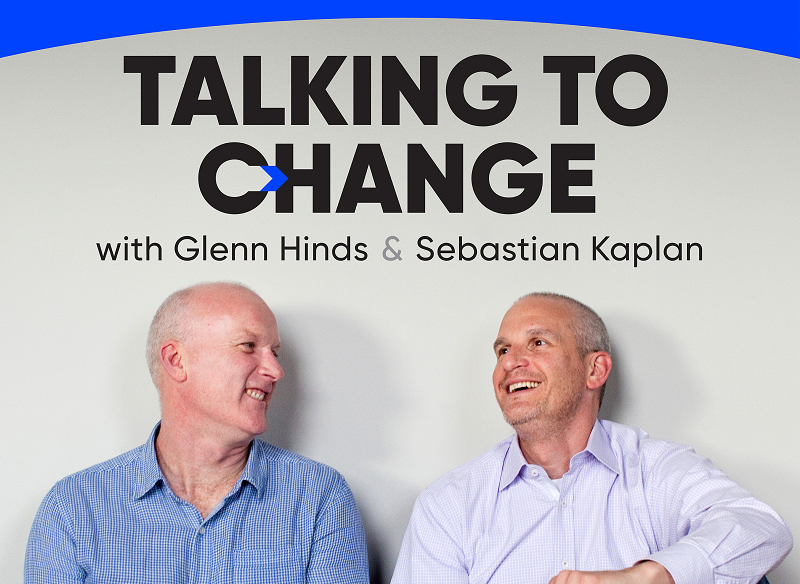
Talking to Change: A Motivational Interviewing Podcast
This podcast, hosted by experts Glenn Hinds and Sebastian Kaplan and sponsored by the Northwest ATTC from 2020-2024, features a series of conversations with guests from around the world exploring motivational interviewing and how it’s used across health, social care, education, and criminal justice to support individuals and groups as they make positive health and lifestyle changes.
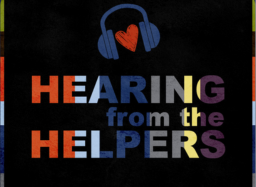
Hearing from the Helpers: A Northwest ATTC Podcast
Since 2020, a greater focus has been placed on bringing more caring professionals into the world of behavioral health care. This podcast was created in 2023 to give providers the chance to tell us what their life is like as someone working in the addiction and recovery field and to help you in your decision to become a helper too! Each episode features CAAHS Associate Director Mitch Doig talking with different types of "helpers" from around HHS Region 10.
Law & Ethics of Clinician-Client Relationships
This 3-hour interactive online course looks at laws and ethics related to clinician-client relationships for behavioral health professionals in AK, ID, OR, and WA. Topics include sources for law and ethics standards, data on misconduct findings, state-specific laws, real-life examples of violations, and more. 3 CE credits available. Produced by the Northwest ATTC.
Contingency Management for Healthcare Settings
This online course, intended to be used as a bridge to more intensive technical assistance, provides an introduction to contingency management for each of four common personnel roles in healthcare organizations: decision-makers, clinical supervisors, direct care staff, and administrative support staff. 1-2.5 CE credits available (depending on the module). Produced by the Northwest ATTC.
Opioid Training for Peer Support Specialists
This 1-hour, self-paced online course is designed to equip peers and other outreach workers with information, resources, and practical tips to help them better understand opioids and their impact on individuals. 1 CE credit available. Produced by the Northwest ATTC.
Staying in Touch: Using Caring Contacts to Sustain Connections with Your Clients
This 1-hour, self-paced digital curriculum describes a low-threshold, Caring Contacts intervention designed to help providers reduce client self-harm, increase feelings of self-efficacy, and fill treatment gaps due to health disparities or other challenges. Produced by the Northwest ATTC.
Third Space Toolkit: Building Space for Telehealth in Libraries and the Community
Developed via sponsorship by the Idaho Department of Health and Welfare, this toolkit is intended to help libraries and other community-based settings design and implement private spaces for telehealth access for substance use disorders and behavioral health care that are confidential and responsive to a variety of people. Though the toolkit focuses on libraries, it can be used by any organization that wants to provide dedicated spaces for telehealth.
The toolkit features sections on the history and role of telehealth and third spaces, trauma-informed spaces, strategies for reducing stigma for substance use disorders and mental health, how to evaluate your telehealth space and program, confidentiality law and privacy protection, how to create your customized space, resources and more! Produced by the UW Center for Advancing Addiction Health Services.
Telehealth Evidence-Based Practices (EBP) Video Demonstrations
This set of demonstrations shows how a diverse set of clinical practitioners make use of EBPs in a telehealth environment, by following a mock patient, Shawn Adams, through a course of substance use disorder care, starting with a crisis, admission to IOP treatment, and a recurrence of use in outpatient treatment, and ending with connecting to a recovery coach for long term planning. The videos can be viewed as stand-alone or in sequence. Produced by the Northwest ATTC in co-sponsorship with the Behavioral Health Institute and with contributions from the Pacific Southwest ATTC.
Telehealth Medications for Opioid Use Disorder (MOUD) Video Demonstrations
This set of demonstrations shows distinct clinical interactions common across the MOUD modality. Except for the first two videos, which show the mock patient from the EBP series at two more stages along his treatment trajectory, the videos in this collection are independent depictions showing different settings, patient situations, and provider types. Produced by the Northwest ATTC in co-sponsorship with the Southeast ATTC and the ATTC Network Coordinating Office.
Clinical Supervision Skills Video Demonstrations
This series intends to provide examples of how to utilize specific methods taught in the Northwest ATTC clinical supervision training series. The series follows two mock supervisees and their supervisors demonstrating clinical supervision vignettes on providing feedback, building a professional development plan, and working through a corrective action. The supervisees in these videos are all relatively new to the field, making a more directive approach to supervision helpful for their stage of professional development. The videos below can be viewed as stand-alone or in sequence. Produced by the Northwest ATTC. We thank Paul Hunziker for his development of these videos and the clinicians involved for their conceptual contributions to the development of these characters and the supervisory scenarios.
Publications and Presentations
Publications
Centering peers in design and training for a peer-delivered contingency management program for self-identified harm reduction goals.
Peng L, Stack E, Cooke A, Hartzler B, Cook R, Leichtling G, Hildebran C, Leahy J, Smith Payne K, Kunkel L, Hoffman K, & Korthuis PT. BMC Supplements, Harm Reduction Special Issue. in press.
Implementing contingency management into rural recovery housing: Recommendations of a professional advisory panel.
Ledgerwood DM, Stott MC, Quesada S, Sontag M, Beck RM, Johnson D, McDonell MG, Johnson D, DePhilippis D, Donnelly S, Hartzler B, Nauts T, Novak M, Peck J, Rash CJ. American Journal of Drug and Alcohol Abuse 2024; 50(6): 831-840.
Comparison of use rates of telehealth services for substance use disorder during and following COVID-19 safety distancing recommendations: Two cross-sectional surveys.
Pusnik A, Hartzler B, Vjorn O, Rutkowski BA, Chaple M, Becker S, Freese T, Nichols M, Molfenter T. JMIR Mental Health 2024; 11: e52363.
Presentations
Development and training for a peer-delivered contingency management program for stimulant use harm reduction.
Peng L, Stack E, Hildrebran C, Hartzler B, Cooke A, Leichtling G, Leahy J, Payne K, Kunkel L, Hoffman K, Korthuis PT. Presented at the 48th AMERSA conference – Empowering Change: From Evidence to Action in Addiction Care and Research, Chicago, IL, November 2024.
Training addiction professionals and peers to deliver contingency management via a coaching-to-criterion process: Results of a non-inferiority analysis.
Hartzler B, Doig M, Cooke A, Kunkel L Peng L, Stack E, Smith Payne K, McIlveen J, Korthuis PT. Presented at the 2024 Addiction Health Services Research Conference, San Francisco, CA, October 2024.
Contingency management for mandated clients – and beyond.
Hartzler B, Wig C. Presented at the 2024 Northwest Institute on Addiction Studies, Portland, OR, August 2024.
Training the addiction workforce to deliver contingency management interventions with fidelity: Results of a coaching-to-criterion process.
Hartzler B, Doig M, Smith-Payne K, McIlveen JW. Presented at the annual scientific meeting of the College on Problems of Drug Dependence, Montreal, Quebec, June 2024.
Expert advisory panel recommendations for implementing contingency management into rural recovery housing.
Ledgerwood DM, Stott MC, Quesada S, Sontag M, Beck RM, McDonell MG, Johnson D, DePhilippis D, Donnelly S, Hartzler B, Nauts T, Novak MD, Peck JA, Rash CJ. Presented at the annual scientific meeting of the College on Problems of Drug Dependence, Montreal, Quebec, June 2024.
Training and technical assistance for peer-delivered contingency management.
Hildebran C, Stack E, Peng L, Hartzler B, Cooke A, Cook R, Leichtling G, Leahy J, Smith-Payne K, Kunkel L, Hoffman, K, Korthuis PT. Presented at the annual scientific meeting of the College on Problems of Drug Dependence, Montreal, Quebec, June 2024.
The Peers Expanding Engagement In Stimulant Harm Reduction with Contingency Management Study.
Cooke A, Stack E, Peng L, Cook R, Hartzler B, Leichtling G, Hildebran C, Leahy J, Smith-Payne K, Kunkel L, Hoffman K, Korthuis PT. Presented at the annual scientific meeting of the College on Problems of Drug Dependence, Montreal, Quebec, June 2024.
Supporting transition to telehealth-based practice by the addiction workforce.
Hartzler B, Nugent M. Presented at the 2024 conference of the Northwest Regional Telehealth Resource Center--The Next Generation of Telehealth, From Reactionary to Visionary, Seattle, WA, April 2024.
Facilitating inclusion of Caring Contacts in telehealth practice: A brief, self-paced training.
Hartzler B, Brunner M. Presented at the 2024 conference of the Northwest Regional Telehealth Resource Center—The Next Generation of Telehealth, From Reactionary to Visionary, Seattle, WA, April 2024.
Recent trends in telehealth for substance use disorders: A comparison of utilization rates during and following COVID-19 safety distancing recommendations.
Pusnik A, Hartzler B, Vjorn O, Rutkowski B, Chaple M, Becker S, Freese T, Nichols M, Molfenter T. Presented at the 2024 conference of the Northwest Regional Telehealth Resource Center—The Next Generation of Telehealth, From Reactionary to Visionary, Seattle, WA, April 2024.
Publications
Exploring the impact of external facilitation using evidence-based implementation strategies for increasing motivational interviewing capacity among outpatient substance use treatment providers.
Chaple MJ, Kunins HV, Nass MD, Benjamin AC, Viel CR, Bertone P, Marker L, Warren P, Hartzler B. (2023). Journal of Behavioral Health Services and Research 2023: 1-18.
It’s time to broaden dissemination of cognitive-behavioral therapy for substance use disorders: Charting pathways to ascend the remaining mountainside.
Hartzler B. Clinical Psychology: Science and Practice 2023; 30(2): 147-149.
Efforts to increase awareness of the transformative potential of the Addiction Technology Transfer Center (ATTC) Network.
Hartzler B. The ATTC Messenger, October 2023.
Flipping the classroom to improve intensive technical assistance efforts.
Hartzler B. In ATTC Network’s 30th Anniversary Pearls of Wisdom. The ATTC Messenger, June 2023.
Presentations
Peers expanding engagement in stimulant harm reduction with contingency management (PEER-CM).
Peng L, Stack E, Leichtling G, Hildebran C, Cooke A, Leahy J, Smith-Payne K, Cook R, Hartzler B, Kunkel L, Hoffman K, & Korthuis T. Presented at the 4th annual NIH HEAL Initiative Investigator Meeting, Bethesda MD, February 2023.
Patient perspectives on stimulant use disorder treatment with contingency management and community reinforcement approach in permanent supportive housing.
Leyde S, Fockele C, Harris C, Bell C, Simon C, Nye E, Wan C, Hoog J, Kennedy A, Hartzler B, Whiteside L, Tsui J. Presented at the 47th AMERSA conference –Advocacy for Equity Around Evidence-Based Treatments, Washington D.C., November 2023.
Flipping the classroom to improve training efforts: Innovative uses of podcasts, webinars, online trainings, fidelity tools, and other asynchronous learning resources.
Hartzler B, Hartlieb K, Hinds G, Kaplan S, Nasholm C, Porter J. Presented at the annual forum of the Motivational Interviewing Network of Trainers, Copenhagen, Denmark, October 2023.
Continued dissemination of contingency management in Oregon: New efforts to improve treatment engagement among clients referred from the criminal justice system.
Hartzler B, Wig C, Cooper L, Tran J, Payne-Smith K, McIlveen J. Presented at the 2023 HHS Region 10 Opioid Summit, Vancouver, WA, July 2023.
Preparing the addiction workforce to practice informed eclecticism through integration of Motivational Interviewing and Cognitive-Behavioral Therapy.
Hartzler B, Feltner A. Presented at the annual scientific meeting of the College on Problems of Drug Dependence, Denver, CO, June 2023.
Publications
Community implementation of contingency management to address stimulant use.
Hartzler B, Gray K, Marx M, Kirk-Lewis K, Payne-Smith K, & McIlveen JW. Journal of Substance Use & Addiction Treatment, Special Issue on Stimulants 2023; 151:208941.
Virtual training is more cost-effective than in-person training for preparing addiction workforce to implement contingency management.
Hartzler B, Hinde J, Lang S, Correia N, Yermash J, Yap K, Murphy CM, Ruwala R, Rash CJ, Becker SJ, & Garner B. Journal of Technology in Behavioral Science—Post-Pandemic Special Issue 2022.
Behavioral healthcare providers’ experiences related to use of telehealth as a result of the COVID-19 pandemic: An exploratory study.
Kisicki A, Molfenter T, Becker SJ, Chaple M, Gustafson D, Hartzler B, Jacobson N, Murphy A, Tapscott S. BMC Health Services Research 2022; 22(1), 775.
Persons from racial and ethnic minority groups receiving medication for opioid use disorder experienced increased difficulty accessing harm reduction services during COVID-19.
Rosales R, Janssen T, Yermash J, Yap KR, Ball EL, Hartzler B, Garner BR, & Becker SJ. Journal of Substance Abuse Treatment 2022; 132(1): 108648.
Presentations
Virtual training is more cost-effective than in-person training for preparing addiction workforce to implement contingency management.
Hartzler B, Hinde J, Lang S, Correia N, Yermash J, Yap K, Murphy CM, Ruwala R, Rash CJ, Becker, SJ, & Garner B. Presented at the Academy Health’s 15th annual conference on the Science of Dissemination and Implementation, Washington D.C. , December 2022.
Motivational Interviewing does not occur in a vacuum: Innovative trainings and resources for the addiction workforce to foster informed eclecticism.
Hartzler B., Doig, M., & Vandersloot, D. Presented at the annual forum of the Motivational Interviewing Network of Trainers, Chicago, IL, October 2022.
Providing intensive technical assistance in motivational interviewing to spur a ‘culture change’ at a behavioral health organization that serves youth and families.
Hartzler B. In B. Cooper (Chair), SAMHSA’s Technology Transfer Center Networks: A National and Regional Approach to Workforce Development & Implementation Support for Equitable Evidence-based Prevention and Treatment. Presented at the scientific meeting of the Society for Prevention Research, Seattle WA, June 2022.
Publications
Integrating Mental Health & Substance Use Disorder Treatment Project: Final Summary Report.
Vandersloot D, Montserrat-Gonzales T, Jefferson D, Stoner S, Roose M, Hartzler B. Seattle, WA: Northwest ATTC, December 2021
Use of telehealth in substance use disorder services during and after COVID-19: online survey study.
Molfenter T, Roget N, Chaple M, Behlman S, Cody O, Hartzler B, Johnson E, Nichols M, Stilen P, Becker S. JMIR Mental Health 2021;8(2):e25835.
Presentations
The Role of an Intermediary Purveyor Organization in Identifying and Responding to Workforce Priorities to Address Culturally-Responsive Services.
Bryan Hartzler and Denna Vandersloot
Poster presented at the Addiction Health Services Research (AHSR) Conference, 2021.
Virtual Site Visits as a Methodology to Assess Health Organizations’ Capacity to Provide Integrated Services for Individuals with Co-Occurring Disorders.
Denna Vandersloot, David Jefferson, Troy Montserrat-Gonzales, Bryan Hartzler
Poster presented at the Addiction Health Services Research Conference (AHSR), 2021.
So You Want to Implement Contingency Management: A Technical Assistance Package to Establish Readiness Among the Multi-Tiered Personnel of an Opioid Treatment Program.
Bryan Hartlzer, R. David Jefferson, Kelsey Payne-Smith, John W. McIlveen
Poster presented at the Association for Medical Education and Research in Substance Abuse (AMERSA) Conference, 2021.
Current Workforce Development Priorities for Training and Technical Assistance for Integration of Behavioral Health Services in Medical Settings.
Denna Vandersloot, Susan Stoner, Bryan Hartlzer
Poster presented at the Addiction Health Services Research Conference (AHSR) Conference, 2020.
The Role of an Intermediary Purveyor Organization in Identifying and Responding to Workforce Priorities to Combat the Opioid Epidemic.
Bryan Hartzler and Denna Vandersloot
Poster presented at the Addiction Health Services Research Conference (AHSR) Conference, 2020.
A Learning Collaborative Focused on Skill Development in Teaching and Coaching Motivational Interviewing.
Bryan Hartzler and Denna Vandersloot
Poster presented at the Addiction Health Services Research Conference (AHSR) Conference, 2019.
Current Workforce Development Priorities for Training and Technical Assistance Concerning Health Services for Persons with Opioid Use Disorder.
Bryan Hartzler and Denna Vandersloot
Poster presented at the College on Problems of Drug Dependence (CPDD) Conference, 2019.
Providing Technical Assistance to a Regional Workforce to Support Implementation of MI.
Denna Vandersloot and Bryan Hartzler
Presented at the Motivational Interviewing Network of Trainers Forum, 2018.
Workforce Development Priorities and Learning Preferences for Evidence-Based Practices and Care Processes.
Bryan Hartzler and Denna Vandersloot
Poster presented at the Association for Medical Education and Research in Substance Abuse (AMERSA) Conference, 2018.
Web-Assisted Training in Contingency Management: A Customizable Yet Scalable Product for Multi-Tiered Personnel in Addiction Treatment Settings.
Bryan Hartzler, Meg Brunner, Dennis M. Donovan, Beatriz Carlini, Denna Vandersloot
Poster presented at the Association for Medical Education and Research in Substance Abuse (AMERSA) Conference, 2018.

